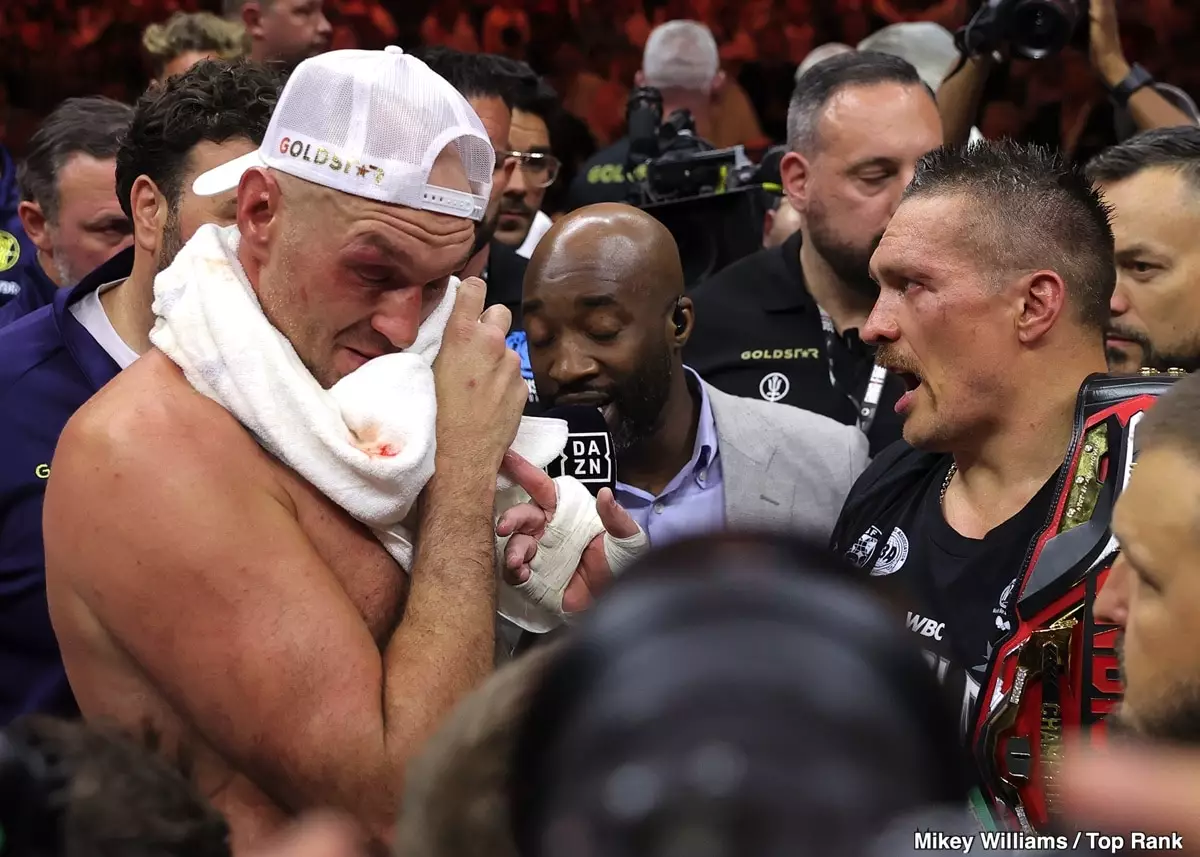The upcoming showdown at Wembley between Oleksandr Usyk and Daniel Dubois isn’t just another heavyweight bout; it’s a pivotal event that could reshape the landscape of boxing for years to come. Many fans and analysts are fixated on the outcome, not only for its immediate implications but also for what it might set in motion beyond the ring. While Usyk is favored to emerge victorious, the unpredictable nature of boxing means that the fight could offer more surprises than many are willing to accept. Dubois’s raw power and resilience inject an element of volatility that could see the underdog derail the favorite—a reminder that in this sport, anything can happen.
What makes this match particularly compelling isn’t merely the fight itself but the unseen ripple effects it might create. If Usyk wins, expectations get heightened—can he neutralize Fury’s interest, or is there a real chance Fury might step back into the ring for a third encounter? Conversely, if Dubois produces an upset, the heavyweight scene could see a seismic shift, potentially opening the door for Fury to pursue the kind of challenge he has publicly longed for. The fight, therefore, isn’t just a standalone event—it’s a catalyst for future rivalries that might dominate the heavyweight division’s headlines for years.
The Fury-Usyk Trilogy: A Long-Awaited Collision
Fury’s desire to face Usyk for a third time is rooted in lingering grievances. The self-professed “Gypsy King” has repeatedly claimed that he was robbed in their previous encounters and that the third fight is essential for his legacy and validation. Despite Fury’s inactivity and apparent focus elsewhere, his willingness to return to the ring for this specific rivalry reveals the magnetic pull of a high-stakes trilogy. It’s a battle not just of skill but of narratives, ego, and redemption.
Frank Warren, Fury’s promoter, paints a picture of a fighter eager to jump straight into this rematch, bypassing a tune-up. His confidence stems from the belief that Fury’s competitive fire remains intact, and he’s still motivated by the quest to settle unfinished business. The storyline is compelling: Fury, after a period of inactivity, returning to confirm his dominance against the man he feels has overtaken him in the heavyweight hierarchy. This supposed willingness to “go straight in” indicates that Fury sees this trilogy as the defining chapter of his career—a fight that could legitimize his legacy beyond the confines of retirement.
The Complex Web of Future Matchups and Motivations
If Usyk manages to defeat Dubois convincingly, a fight with Fury could become not just a wish but a realizable reality. Fury’s recent comments suggest that he’s willing to wait for the right moment, demonstrating patience and tactical planning. His apparent motivation hinges on achieving a definitive victory over the Ukrainian champ, something that would cement his status as arguably the most formidable heavyweight of this era.
However, boxing is seldom predictable. Dubois’s potential victory could rewrite the script entirely, possibly paving the way for Fury versus Dubois in a different context or even sparking new rivalries. Warren’s skepticism about Fury fighting Dubois directly hints at the complicated matchmaking landscape. The interim may be filled with fights designed for strategic building, but the heavyweight division’s true allure remains rooted in the classic rivalries—Fury vs. Usyk, Fury vs. Joshua, or even a surprise upset scenario.
The intrigue is heightened by the fact that Fury has shown no publicly expressed interest in fighting Dubois—a heavyweight with raw power that could pose problems. This selective approach highlights how fighters and promoters consider matchups often based on narratives, marketability, and perceived risk.
Looking Ahead: A Dramatic Road to 2026?
The horizon of heavyweight boxing is dotted with potential upheavals and epic battles, but the most tantalizing is the prospect of a Fury-Usyk trilogy. If the stars align—Usyk winning convincingly, Fury’s perpetual desire for another shot, and the divisions’ focus shifting appropriately—2026 could witness the long-anticipated third chapter between these giants.
Fury’s vocal declaration of wanting a third fight against Usyk reveals that the personal and professional stakes are higher than ever. He views this as the culmination of his career’s narrative, an opportunity to prove his supremacy once and for all. Meanwhile, Usyk’s ambition remains clear—dominate his current fight and then weigh the possibility of future challenges, possibly even Fury himself.
In truth, the question is less about whether this trilogy will happen and more about the cultural and sporting impact it would generate. Boxing’s history is replete with rivalries that defined eras, and this potential trilogy carries that same weight. Whichever way the upcoming clash at Wembley swings, it is clear that heavyweight boxing’s future hinges on these ongoing rivalries—fights that are as much about legacy and storytelling as they are about physical prowess in the ring.


Leave a Reply